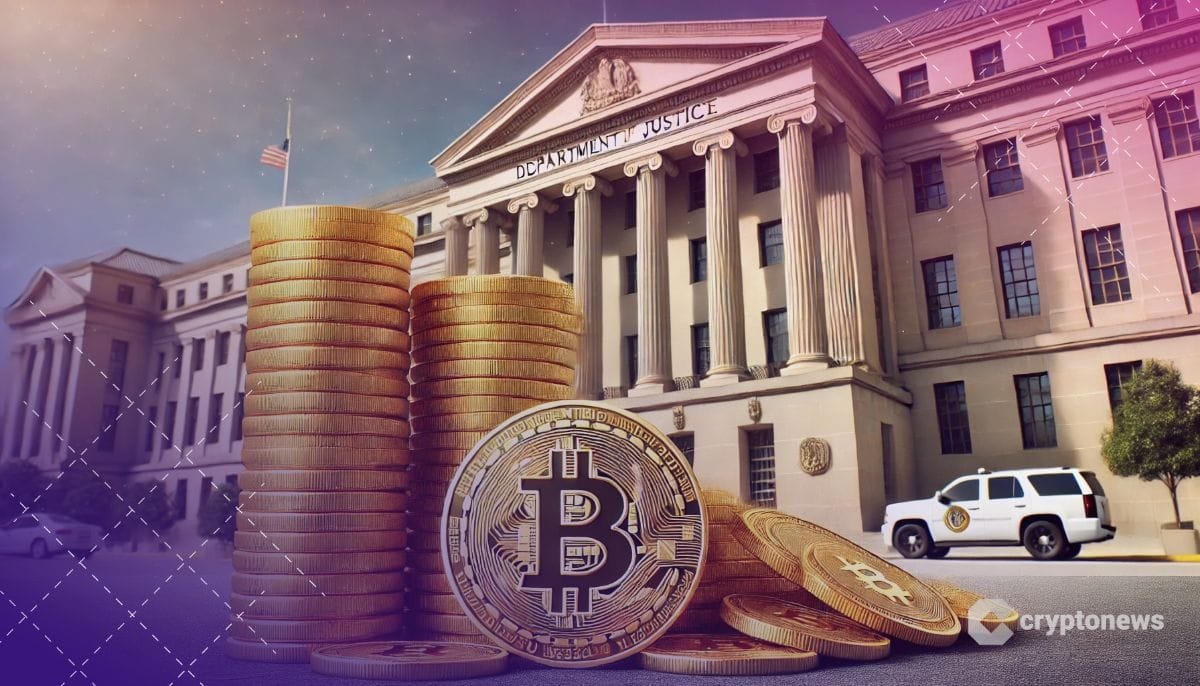Last updated:
 Why Trust Cryptonews
Why Trust Cryptonews
Ad Disclosure
We believe in full transparency with our readers. Some of our content includes affiliate links, and we may earn a commission through these partnerships. Read more

The US Department of Justice has received approval to sell 69,370 Bitcoin worth $6.5b, seized from the Silk Road dark web marketplace, DB News reported Thursday.
Officials reportedly confirmed that a federal judge issued this decision on Dec. 30, allowing the DOJ to convert the Bitcoin into US dollars.
This move would represent a significant financial recovery for the government. The funds could be used to support law enforcement initiatives. They might also help compensate victims of crimes related to Silk Road.
This decision concludes a contentious legal battle in which a company called Battle Born Investments claimed ownership of the digital assets through a bankruptcy estate.
Battle Born Loses Legal Fight Over Silk Road Bitcoin as Supreme Court Declines Case
In 2013, federal authorities shut down the Silk Road, a well-known online black market, and seized large amounts of Bitcoin. Among the seized assets, 69,370 Bitcoin became the center of this legal dispute.
Battle Born Investments argued that they had lawfully acquired rights through a bankruptcy estate tied to Raymond Ngan, whom they believed to be “Individual X” and accused of stealing the cryptocurrency from Silk Road.
Battle Born Investments encountered rejection at every stage of the legal process. They lost in district court in 2022, followed by another defeat in 2023 when the US Court of Appeals ruled against them. The Supreme Court’s decision to decline the case has ultimately ended their attempt to secure the Bitcoin.
Battle Born’s attorney openly criticized the DOJ’s tactics, labeling them as “another egregious example of the DOJ’s abuse of the Civil Asset Forfeiture process” and alleging that the government “resorted to procedural trickery.”
New Admin Plans Strategic Bitcoin Reserve Instead of Selling Seized Crypto
With Battle Born Investments out of the way, the DOJ can now move forward with selling the seized Bitcoin. This sale could become one of the largest government crypto liquidations ever.
The DOJ justified its request by citing Bitcoin’s price volatility. As for the next steps, a DOJ spokesperson stated that the government will proceed in line with the court’s judgment, according to DB News.
This situation is especially notable as it comes just days before the new administration takes office, after explicitly pledging not to sell any Bitcoin.
President-elect Donald Trump has proposed creating a “Strategic Bitcoin Reserve,” signaling a shift in policy toward retaining, rather than liquidating, government-held Bitcoin. This approach would cover not only the 69,370 Bitcoin seized from the Silk Road but also all future confiscated cryptocurrencies.
The idea is to establish a national Bitcoin reserve, similar to the Strategic Petroleum Reserve, aimed at managing digital assets and guarding against potential economic risks.
Selling such a large volume of Bitcoin could impact the market. A bulk sale might push prices down by increasing supply. However, the DOJ usually sells seized assets in smaller batches to reduce market disruption. Even so, controlled sales can still influence market behavior if not carefully timed and managed.
















